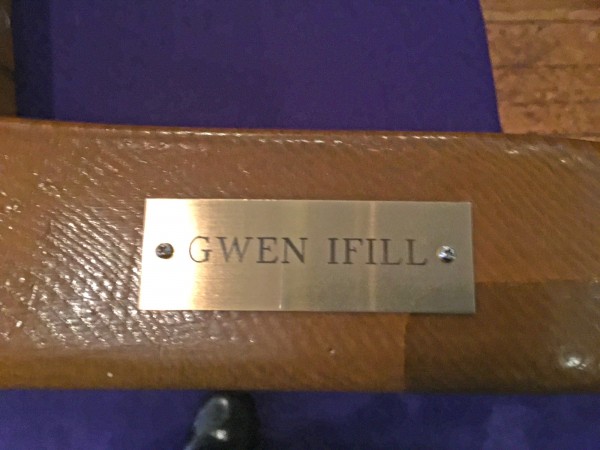 Jim Francesconi
Jim Francesconi
The numbers are appalling, said Jim Francesconi, former Portland city commissioner. Of 12,280 carpenters in the Portland area, only 80 are Black. Of the 7,000 first-line supervisors in the construction trades, only 95 are Black.
There are a few caveats to these figures: They come from the Oregon Employment Department's census six years ago, and they come from people who describe their own professions.
But still, said Francesconi, who has, with professionals in the construction industry, developed the Construction Apprenticeship & Workforce Solutions Inc. (CAWS) program aimed at training minorities for the building trades, the numbers haven't changed much, especially for African Americans.
Overall, 55,832 Portland area residents listed their jobs among the 29 construction categories. Of those, only 1.2 percent — or 684 — were African Americans. Of the African Americans, only 34 were women.
In fact, when the employment department's survey was done, there were no African Americans who were boilermakers, cement masons or concrete finishers, paving or surfacing equipment operators, drywall installers or glaziers. No African American listed his or her profession as an insulation worker, paper hanger, plasterer, roofer, elevator installer, hazardous materials removal worker or highway maintenance worker.
"We need some concentrated efforts in the African American community," Francesconi said. "We need successful role models in the neighborhoods."
But as the city of Portland, as well as public and private organizations, move forward on plans for major construction projects — including Oregon Health & Science University's South Waterfront plan, the Housing Authority of Portland's reconstruction of Iris Court (formerly Humboldt Gardens) and the Portland Development Commission's redevelopment of Martin Luther King Boulevard — the need for construction workers is going to be huge, Francesconi said.
Oregon will have at least 8,300 openings in the construction trades between now and 2014, according to the Oregon Employment Department.
"There's an opportunity now because of the need and this is the time to capitalize on it," he added.
CAWS is designed to do just that. For nearly a year, Francesconi and representatives from private companies including Hoffman Constrution Co., Howard S. Wright Construction, Gerding/Edlen Development Co. and Andersen Construction Co., have been gathering information and ideas for the program with a mission to increase the number of minorities and women in the industry by 5 to 10 percent a year.
They also hired James Trapp as the organization's executive director. Trapp, who runs the Evening Trades and Apprenticeship Preparation program for the Housing Authority of Portland, will begin his new job on July 15.
Essentially, CAWS will begin administering the housing authority's program, and will work out partnership agreements with the Oregon Tradeswomen and Portland YouthBuilders. Instead of being limited to housing authority residents or those in North and Northeast Portland, the effort to train minority works will be extended regionally, Francesconi said.
Or, as the former mayoral candidate noted, "We will have a much larger constituency."
Classes are taught by membersoftheUnited Brotherhood of Carpenters, who will cover seven training modules, including framing, blueprint reading, power tools and safety. Students attend 190 hours of training over nine weeks, Monday through Thursday evenings and every Saturday. Along with the training comes discussions about the issues they may face on the work site, and some personal coaching is done.
"When the graduates walk out the door they aren't going to be utterly green," Trapp said. "They will have the basics — an edge up on others."
Since its beginnings in 1998, the apprenticeship program has graduated 151 people; of those 100 are construction apprentices in unions, and 35 others are working in open shops. About 85 percent of the graduates are minorities and/or women.
However, certain requirements must be met before entering the CAWS program: Applicants must earn 50 percent or less of the area's median income for their household size and they must have minimum math and reading skills. They also must have the physical agility and strength needed to do construction work.
Competition is tough, too. Of the 200 people who apply for the classes, only 35 are selected. Tutors may be available for those who need help with math and reading skills, and they can re-apply, Trapp said.
But the effort does pay off, he added. Depending on the job and the type of work, the average annual wage is $38,399, or $4,000 more than the average wage for all other industries, according to CAWS research.
While the program initially has income guidelines for applicants, the CAWS board has yet to grapple with the question about offering training to those who have higher incomes but want to enroll in the program, Francesconi said.
But Francesconi and Trapp recognize that the demand for trained construction workers could outstrip the supply. That's why private industry is eager to embrace the training program.
"With an aging workforce in Oregon, there's really going to be a vacuum very soon," Trapp said. "If Oregon doesn't have a workforce, companies are going to be looking outside for help. It is time to have a workforce that is more diverse and also includes women."
In addition, public agencies are increasingly demanding that their construction projects include more minority representation, Trapp noted. Those requirements mean more opportunities for everyone.
"This is the first time that the private and public sectors and various programs in the construction trades have started working together," he said.
The old perception that minorities and women weren't welcomed in the White male-dominated trades is slowly giving way to a sense of need for everyone to be involved, Francesconi said.
"There's a sense that it's the right thing to do. As Portland becomes more diverse, he said, "People want to show it's a diverse city, not just a sustainable city. I'm not sure this was seen as valuable five years ago."
For more information about the next construction training class, call 503-289-4200.






















































































































































































































































































































